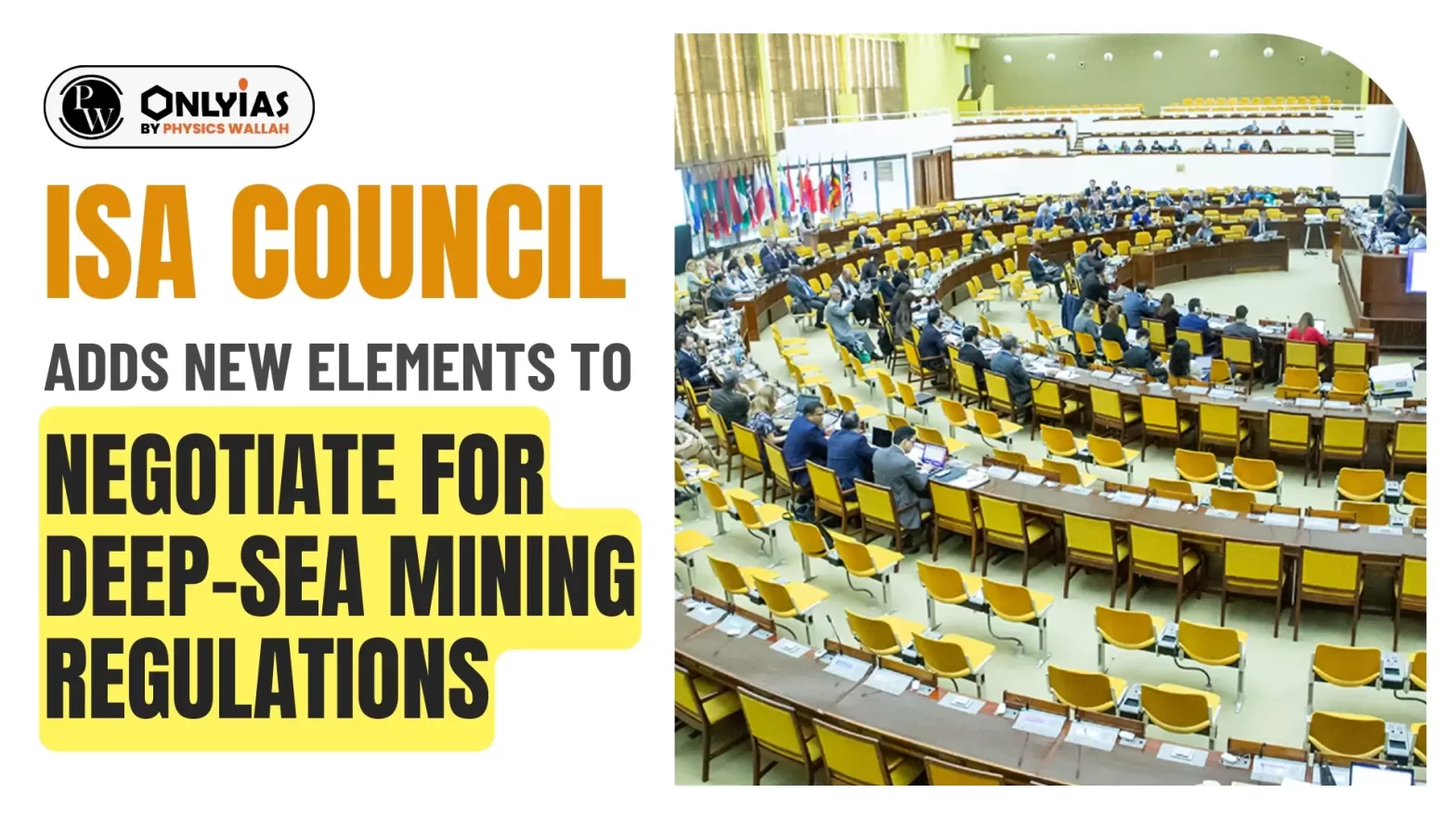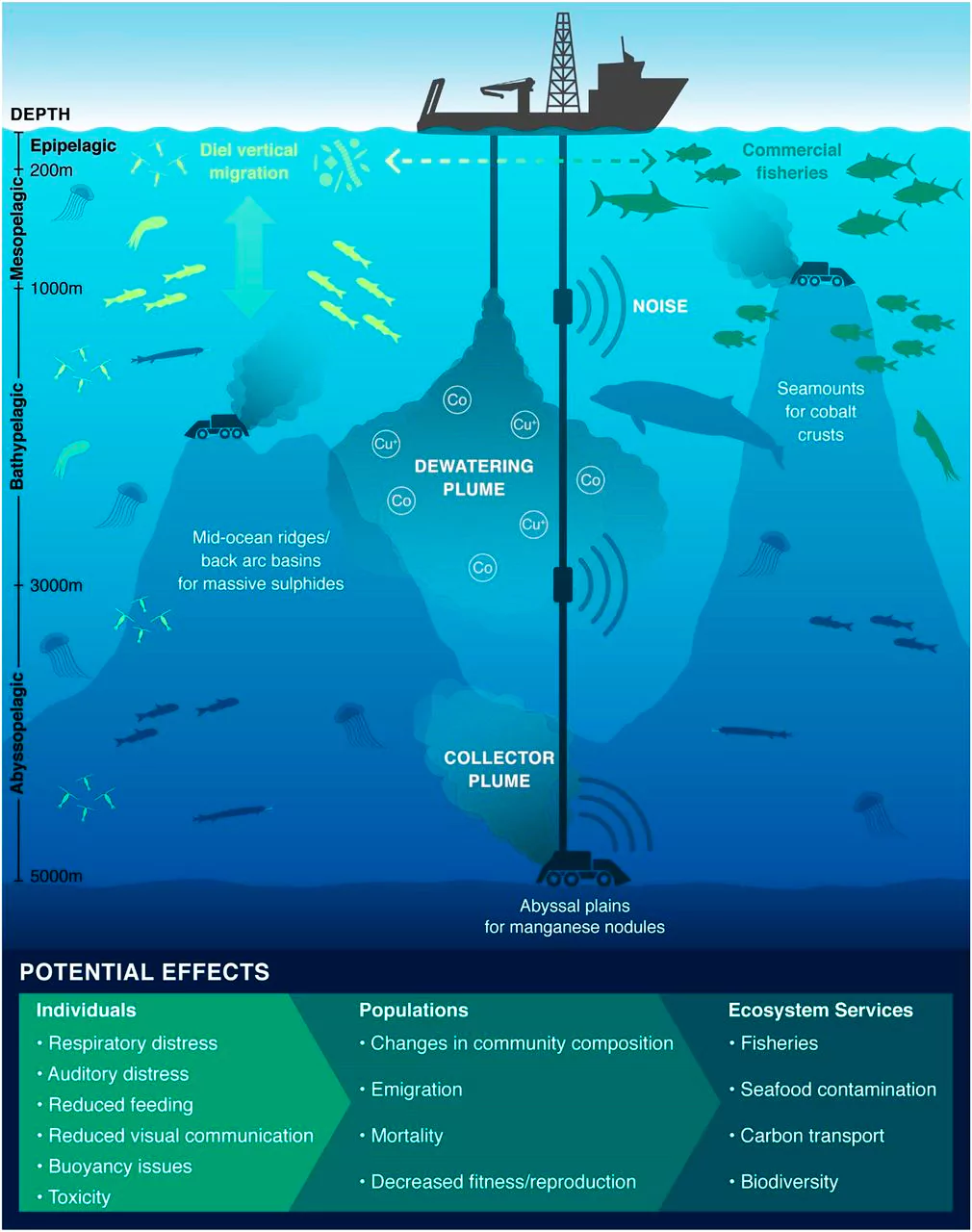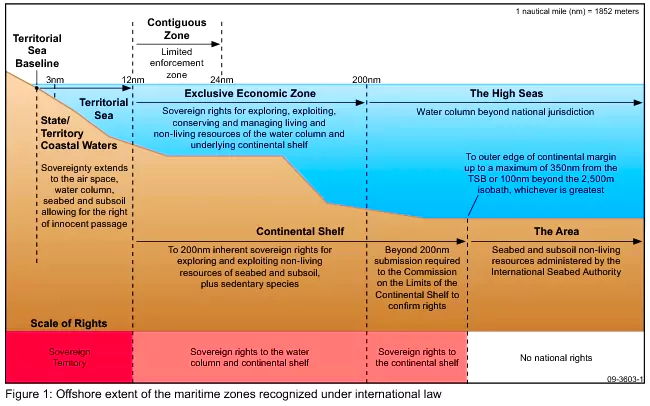
The first part of the 29th session of the International Seabed Authority (ISA) Assembly and Council took place recently in Jamaica.
| Relevance for Prelims: Ocean Resources And Its Potential, and UNITED NATIONS CONVENTION ON THE LAW OF THE SEA (UNCLOS).
Relevance for Mains: Deep-sea Mining: Significance, Challenges, and Regulations. |
|---|
International Seabed Authority (ISA)
|
|---|


| Prelims PYQ (2022):
With reference to the United National Convention on the Law of Sea, consider the following statements: 1. A coastal state has the right to establish the breadth of its territorial sea up to a limit not exceeding 12 nautical miles, measured from baseline determined in accordance with the convention. 2. Ships of all states, whether coastal or land-locked, enjoy the right of innocent passage through the territorial sea. 3. The Exclusive Economic Zone shall not extend beyond 200 nautical miles from the baseline from which the breadth of the territorial sea is measured. Which of the statements given above are correct? (a) 1 and 2 only (b) 2 and 3 only (c) 1 and 3 only (d) 1, 2 and 3 Ans: (d) |
|---|
| Mains Question: How do ocean currents influence the worldwide distribution of marine resources? (10 M, 150 Words) |
|---|
| Must Read | |
| NCERT Notes For UPSC | UPSC Daily Current Affairs |
| UPSC Blogs | UPSC Daily Editorials |
| Daily Current Affairs Quiz | Daily Main Answer Writing |
| UPSC Mains Previous Year Papers | UPSC Test Series 2024 |
To get PDF version, Please click on "Print PDF" button.
How Clean Energy Needs, New Tech Shape Mineral Gov...
Stepping Stone: On Shubhanshu Shukla, NASA-Axiom-I...
How is Global Shipping trying to Decarbonise?
Contesting the Future of Forest Governance
A Tectonic Shift in Thinking to Build Seismic Resi...
Safe Havens No More: On Growing Crime Against Wome...
Monsoon Session of Parliament 2025: 21 Sittings, 8...
Language, Culture, and Identity in India
Indian Army Tests Akash Prime in Ladakh, Boosting ...
Banni Grasslands in Gujarat Ready to Host Cheetahs...
CWC Warns NGT: 34 Glacial Lakes in India Expanding...
Coronal Mass Ejections (CMEs) Trigger Rare Norther...

<div class="new-fform">
</div>